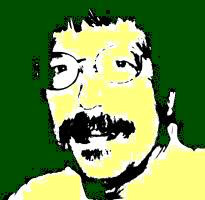This prospectus from the ACRL task force charged with revising the ACRL Information Literacy Standards (2000) highlights the likely introduction of 'threshold concepts' and 'metaliteracy' as features of the new statement of standards. They frame these two elements with the idea of a holistic view of educated information use and the idea of lifelong learning as opposed to a skill set that can be taught and "learned once and for all." In a coming post I will speak in more detail as to what we are doing at SUNY Oswego in regard to threshold concepts and metaliteracy, and also how our work on a Cognitive Apprenticeship approach strengthens learning through continuous practice. I want to emphasize the holistic aspect but for now will only point out that other things on this blog already address that thoroughly.
Also For Now
About threshold concepts: "They are the central concepts that we want our students to understand and put into practice, that encourage them to think and act like practitioners themselves." (Hofer, Townsend, and Brunetti, 2012, 387-88 quoted by the ACRL task force.)
At Oswego we have been coming at this from the perspective of situated cognition which calls for explication of the landmark or guidepost concepts and then implicit or tacit learning of details and refinements of practice. Related work on Cognitive Apprenticeship calls for "focus on conceptualizing the whole task before executing the parts." (Collins, Brown and Holum, 1991.) The outcome of our work is the Question-Discover-Use conceptual framework of the research process. In short, this framework shows students how posing a question, finding expert sources and using those sources to build new knowledge will involve them in growing participation in a community (discipline) of scholarly or professional practice.
And about metaliteracy: "Metaliteracy expands the scope of traditional information skills…to include the collaborative production and sharing of information in participatory digital environments… " (Mackey and Jacobson, forthcoming quoted by the ACRL task force.)
We have also anticipated this development in creating Question-Discover-Use. We have tried to pair words for traditional literacy with terms that are more open to a wide range of media and formats. So Reading/Understanding, Writing/Sharing, and Thinking/Creating. We also work to emphasize the social and personal elements of research by suggesting that one's question should interest others; that sources are persons with names and expertise, not just a book object; that one's own work is a disciplined contribution to knowledge; that integrity is a matter of respect for others and oneself; and that a student researcher is joining a network of professionals.
And For Later
In a future post I will report on how we developed Question-Discover-Use in part as an attempt to update our past uses of the ACRL Standards and how we are using the framework in improving information literacy learning through the principles of Cognitive Apprenticeship.
Also, we hope to offer an early exemplar of what the new Standards could look like in practice.




No comments:
Post a Comment